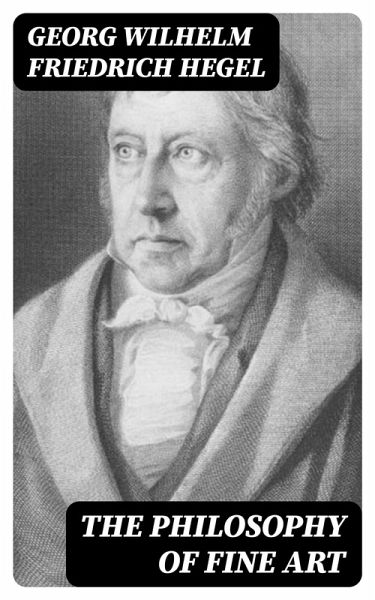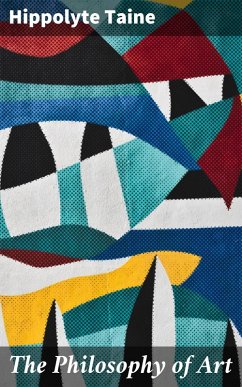
The Philosophy of Fine Art (eBook, ePUB)
Volume 1-3
Übersetzer: Osmaston, Francis Plumptre Beresford

PAYBACK Punkte
0 °P sammeln!
In "The Philosophy of Fine Art," Georg Wilhelm Friedrich Hegel offers a profound exploration of aesthetics and the nature of art within the framework of his idealist philosophy. This seminal work, published in the early 19th century, delves into the evolution of artistic expressions, examining how art embodies the unfolding of human consciousness and spirit. Hegel engages with various artistic forms-painting, sculpture, music, and poetry-analyzing their historical significance and inherent dialectical development. His literary style intertwines rigorous philosophical inquiry with a deep apprec...
In "The Philosophy of Fine Art," Georg Wilhelm Friedrich Hegel offers a profound exploration of aesthetics and the nature of art within the framework of his idealist philosophy. This seminal work, published in the early 19th century, delves into the evolution of artistic expressions, examining how art embodies the unfolding of human consciousness and spirit. Hegel engages with various artistic forms-painting, sculpture, music, and poetry-analyzing their historical significance and inherent dialectical development. His literary style intertwines rigorous philosophical inquiry with a deep appreciation for the nuances of artistic creation, situating art as a crucial component in the pursuit of absolute knowledge and self-realization. Hegel, a pivotal figure in German idealism, was heavily influenced by contemporary philosophical currents as well as the socio-political upheavals of his time. His engagement with figures like Kant and Fichte, along with the Romantic movement, helped shape his views on art as an expression of the sublime and the metaphysical. Hegel's belief in the transformative power of art reflects his broader philosophical system, where reality is understood as a dynamic process of development and reconciliation through conflict. This book is highly recommended for those seeking a deeper understanding of art's philosophical underpinnings. Hegel's insights offer an enriching perspective not only for scholars of philosophy and aesthetics but also for artists and art enthusiasts eager to grasp the intricate connections between artistic expression and human experience. "The Philosophy of Fine Art" is essential reading for anyone interested in the profound questions surrounding beauty, creativity, and the human condition.
Dieser Download kann aus rechtlichen Gründen nur mit Rechnungsadresse in A, B, BG, CY, CZ, D, DK, EW, E, FIN, F, GR, H, IRL, I, LT, L, LR, M, NL, PL, P, R, S, SLO, SK ausgeliefert werden.













